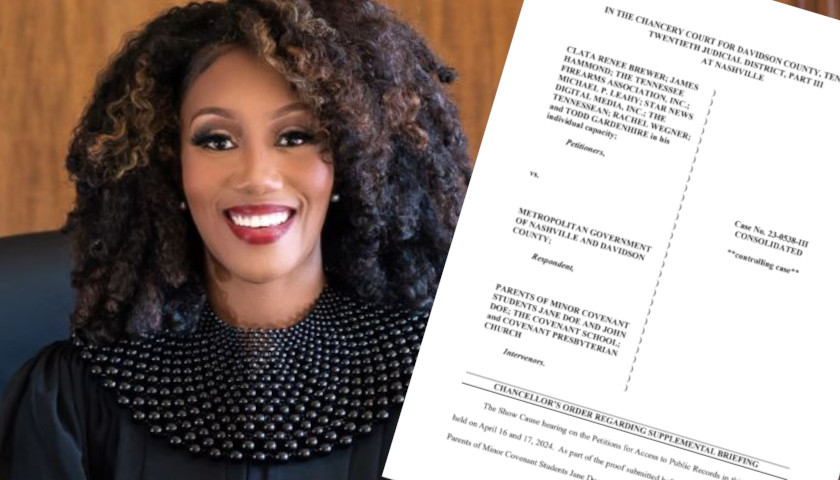An after-action review board found that the Metro Nashville Police Department (MNPD) 2019 response to a report of the Nashville bomber was inadequate. They noted that the follow-up to the August 2019 incident had multiple issues: namely, lack of documentation and insufficient information gathered. However, the review board also asserted that its analysis doesn’t mean that the bombing was preventable.
The After-Action Review Board concludes that there is no way to know for sure if the suicide bombing on December 25, 2020 could have been prevented. Law enforcement followed protocols and procedures regarding the 8/21/19 incident, however deficiencies were identified in how the follow-up investigation was conducted. An after-action report, by its very nature, invites the examiners to employ hindsight in reaching their conclusions. But there is danger in that. One must not assume that because certain good practices were not followed or certain actions were not taken, the outcome would have necessarily been different had those proper steps been taken. All we can say for sure is that following the best practices and being diligent creates the best opportunity for a good result next time.
[wonderplugin_pdf src=”https://tennesseestar.com/wp-content/uploads/2021/06/510304411-MNPD-Nashville-Downtown-Bombing-After-Action-Review-Board-Report.pdf” width=”650″ height=”866px” style=”border:0;”]
The review board did commend the officers who responded to the 2019 call for following certain protocols, such as contacting their supervisors, assisting the 911 caller at the scene, and taking proper documentation.
The review board recommended:
- Documentation of investigative actions taken by the Hazardous Devices Unit (HDU);
- Precinct-based detectives join the HDU in investigating bomb-related incidents;
- MNPD appoint a representative to the Joint Terrorism Task Force;
- Separate criminal and counterterrorism intelligence components in the Specialized Investigations Division (SID);
- MNPD update its Executive Staff immediately concerning any major cases involving viable threats or terrorism;
- Documentation of all follow-up efforts on any individual regarding an HDU investigation, even if efforts don’t result in progress or contact. Such attempts include: calling, door knocking, computer checks, database checks, etc.;
- Random quarterly audits of HDU case files to ensure best investigative practices and proper document completion;
- Monthly explosive summit meetings attended by MNPD HDU technicians, MNPD SID representatives, FBI representatives, ATF representatives, and Tennessee Department of Homeland Security representatives to discuss investigations and necessary casework to complete them;
- Emails to precinct commanders with active, related investigations following the monthly explosive summit meetings from the Special Operations Division captain;
- Implementing a four-part confirmative closure prior to officially marking a case inactive:
- A reasonable attempt shall be made to follow-up with the reporting person, complainant, or those who have information related to the allegation or incident;
- Federal database checks shall be conducted through the FBI, ATF, DEA, DHS, and other applicable agencies;
- State and local database checks shall be conducted through the MNPD, State of Tennessee, Joint Terrorism Task Force, and other applicable components;
- The Specialized Investigations Division shall be contacted for a final database and online check, and if an investigation is halted due to lack of probable cause or other legal reason, the MNPD’s Case Preparation component, legal advisor, and/or the district attorney’s office shall be contacted to discuss the full scope of options.
- Reminder to all MNPD officers – through roll call training – of the legal resources available to assist them when determining probable cause for a search warrant;
- Submission of a State of Tennessee “Suspicious Activity Report” (SAR) of all HDU calls where there’s reason to believe further investigation is necessary.
MNPD Chief John Drake formed the committee in January, several weeks after the Christmas Day bombing occurred and reports emerged that MNPD received a complaint in 2019 that the bomber, Anthony Warner, was building a bomb in his RV. At the time, responding officers said there was “no evidence or reasonable suspicion” of Warner building a bomb.
In a press release published Wednesday, Drake focused on the fact that the after action review board – which he referred to as a special committee – couldn’t say conclusively whether the Christmas Day bombing was preventable.
“While the committee concluded that there was no way to know for sure whether the Christmas Day bombing could have been prevented, and that patrol officers followed protocols and procedures during the August 2019 call, deficiencies were identified in the follow-up investigative process,” stated Drake. “It is of paramount importance to all of us that any deficiencies are corrected.”
Drake said that this analysis and the recommendations will significantly strengthen MNPD’s bomb-related investigations.
MPD noted in the press release which of the review board recommendations have already been implemented since the bombing or will be implemented in the near future.
Drake shared that they would be implementing the recommendations immediately.
– – –
Corinne Murdock is a reporter at The Tennessee Star and the Star News Network. Follow her latest on Twitter, or email tips to [email protected].








